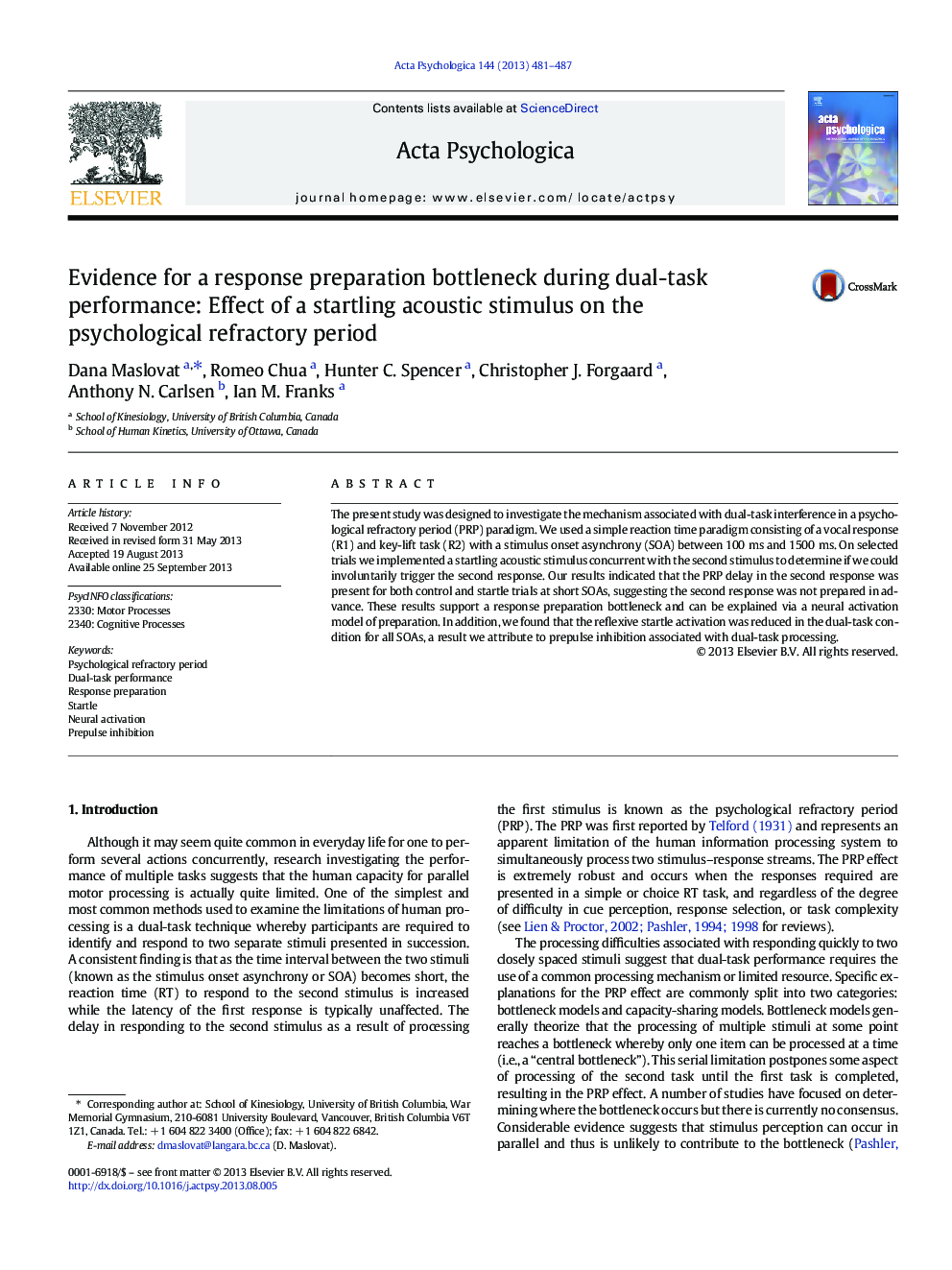| Article ID | Journal | Published Year | Pages | File Type |
|---|---|---|---|---|
| 10453798 | Acta Psychologica | 2013 | 7 Pages |
Abstract
The present study was designed to investigate the mechanism associated with dual-task interference in a psychological refractory period (PRP) paradigm. We used a simple reaction time paradigm consisting of a vocal response (R1) and key-lift task (R2) with a stimulus onset asynchrony (SOA) between 100Â ms and 1500Â ms. On selected trials we implemented a startling acoustic stimulus concurrent with the second stimulus to determine if we could involuntarily trigger the second response. Our results indicated that the PRP delay in the second response was present for both control and startle trials at short SOAs, suggesting the second response was not prepared in advance. These results support a response preparation bottleneck and can be explained via a neural activation model of preparation. In addition, we found that the reflexive startle activation was reduced in the dual-task condition for all SOAs, a result we attribute to prepulse inhibition associated with dual-task processing.
Keywords
Related Topics
Life Sciences
Neuroscience
Cognitive Neuroscience
Authors
Dana Maslovat, Romeo Chua, Hunter C. Spencer, Christopher J. Forgaard, Anthony N. Carlsen, Ian M. Franks,
